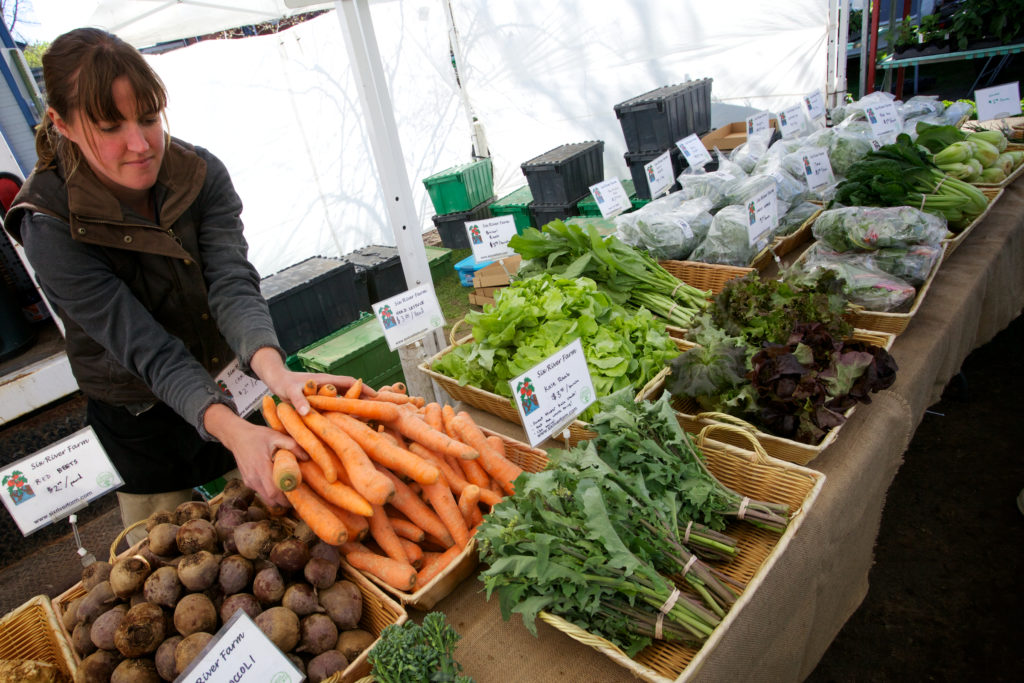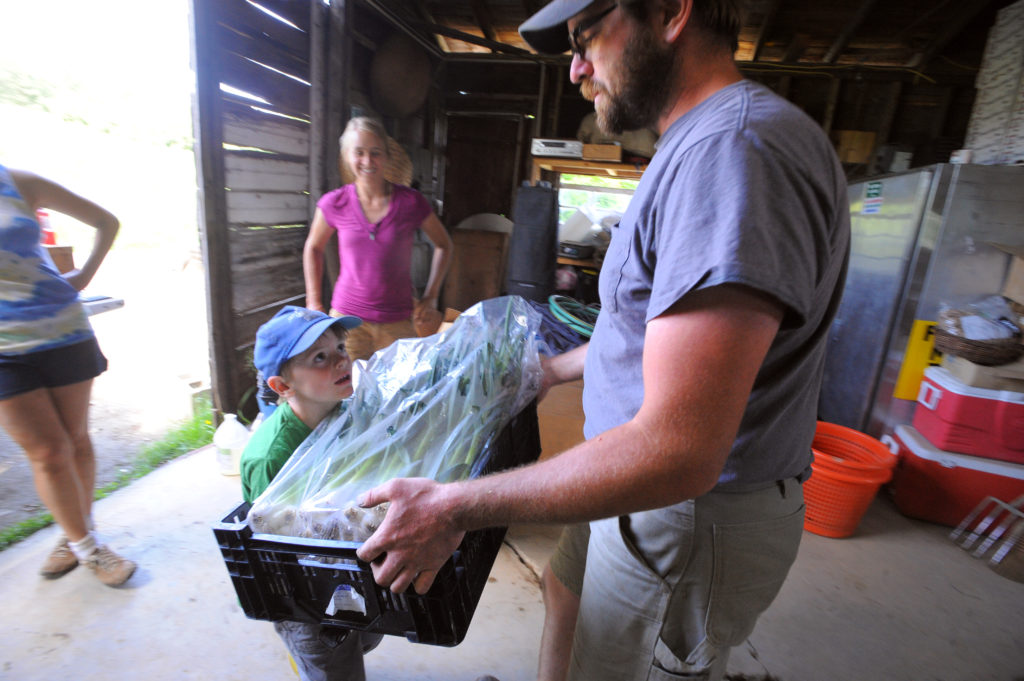Where to sell crops

As a grower, you want to successfully sell your crops. But the options for where to sell crops can seem overwhelming. Will you go the classic route of the farm stand or farmers market, are you hoping to sell to a farm-to-table restaurant or is there a local supermarket vying for your produce?
“It is a little trickier for beginning farmers,” said Erica Frenay, online course manager at the Cornell University Small Farms Program. “For a long time, you could operate with the mentality of, ‘If I grow it, they will come,’ but now it is more imperative that beginning farmers have an idea of who their target market is.”
Before you begin, make sure you are familiar with the regulations in your area. Regulations vary not only at the federal, state and local level, but also between markets depending on where you live.
Shannon Dill, extension educator and co-chair of the Beginning Farmer Success program at the University of Maryland Cooperative Extension, said that in Maryland, for example, the rules vary depending on the product and where you plan to sell it.
Growers who want to sell at a farmers market in Maryland need to register as an LLC and prepare a state nutrient management plan. Since the health department regulates the farmers market, growers also need a permit from the health department, and specific markets may require product liability insurance and certification.
It matters how you sell your produce, too: Dill said that as soon as you cut something, it becomes a value-added product with additional regulations.
“A box of strawberries is ok, but as soon as you slice something like a melon, you are taking a processing step and it requires extra certification,” Dill said. “I would recommend contacting your local [cooperative] extension office to help you navigate some of those.”
In Maine, by contrast, regulations on small-scale growers are relatively lax.
“In order to sell produce, there’s really no regulatory hurdles in Maine as long as you’re bringing in less than $25,000 in your sales,” Lilley said. “Even though small scale producers aren’t subject to that regulation, it is still very important that they’re paying attention to that and they’re not selling produce that has manure on it.”
Dill, Frenay and Lilley agreed that local cooperative extensions are the best place to start for new farmers looking to navigate the various regulations in their area, though the institution’s ability to help first-time farmers can vary between counties.
“I would always recommend that people try their local extension first, and if they aren’t satisfied with the answers they get there, search terms like ‘beginning farmer in your state [or] county,’” Frenay said. “You may find that there are other organizations in their county that are set up to help.”
After you are acquainted with the rules, determining the best place to sell your crops depends on who you are and what you grow.
“It definitely comes back to the grower’s personality and preferences and the amount of time they have available to put into [selling their crops],” Jason Lilley, sustainable agriculture professional at the University of Maine Cooperative Extension.
Farmers markets
Farmers markets are a popular option for growers to sell their produce, but they do not guarantee success.
“For the last 10 or 15 years, the farmers market has been the go-to, but it really depends where you are,” Frenay said. “In a lot of places, the farmers market has become quite saturated, and it’s hard to get in. It can be a great way to meet people get word out, but also a huge time sink with not a lot of income.”
“Farmers markets are a great way to have that face to face connection with your consumer and have that relationship, which goes towards marketing and your customer loyalty,” Lilley added. “The downside to that is you have a lot of time that has to go into that. It’s at least an eight hour day.”
Roadside farm stands
Whether you are concerned about the cost or the time commitment, there are a few options for other selling targets beyond the farmers market. Roadside farm stands are an option, though you may have to inquire as to whether there are regulations in your area.
In Maine, Lilley said that the Department of Agriculture, Conservation & Forestry’s Quality Assurance regulations require that roadside stands constitute a three-sided structure with a roof on it.
“Some people would rather not interact with people for that much time all at once, so roadside stands are a good option,” Lilley said. “It’s good in that you can just put out the product and people come.”
The downsides to roadside stands are mainly to do with the uncertainty, insecurity and product control.
“If you have a cash box out, someone could walk off with it, but most people who I’ve spoken with have not had an issue with that,” Lilley said. “It’s kind of difficult to keep up the quality of the produce if you’re going to keep it out for the day.”

Local restaurants or supermarkets
Growers looking to sell their produce can also set up an agreement with a local co-op or natural food store, which is especially good for those producing smaller quantities of a specialty product.
“With that, you just have to make that connection with the produce buyer at that location,” Lilley said. “Set up a time go and drop it off, take your money and you’re good to go.”
These markets may be trickier to break into, though, and require a fair amount of networking and personal connections. If you have not yet built those networks, researching in advance may also help you to fill any existing voids in their inventory.
“Go to your local restaurants or local coops and natural food stores and ask them if there’s anything they have a hard time finding,” Lilley suggested. “Have those conversations way before you plant anything.”
If you want to make money on your crops, market research is valuable regardless of where you sell in order to be sure that your customers enjoy eating your produce as much as you enjoy growing it.
